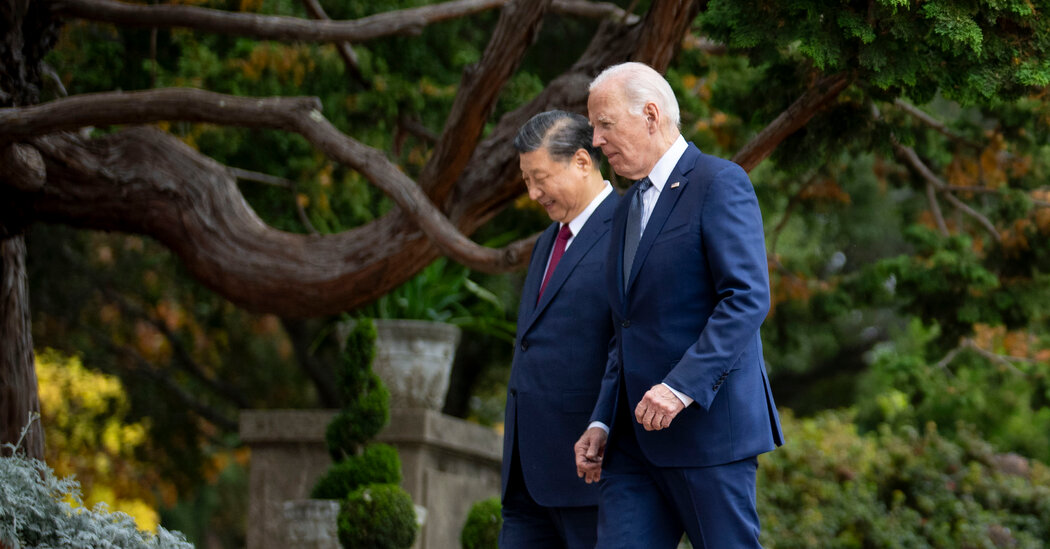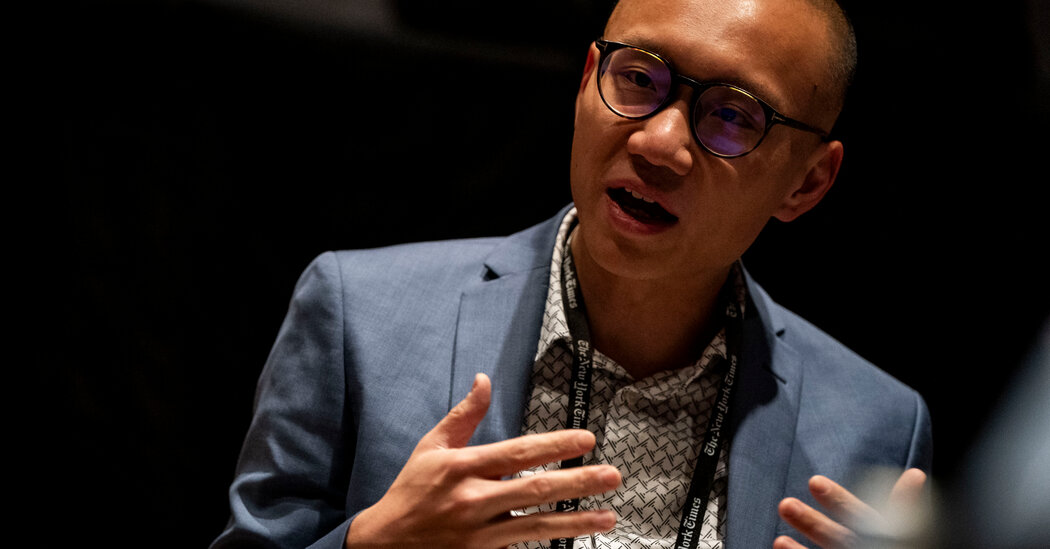The United States imposed sanctions on Monday on Chinese hackers and accused them of working as a front for Beijing’s top spy agency, part of a broad effort to place malware in American electric grids, water systems and other critical infrastructure. The sanctions were a major escalation of what has become an increasingly heated contest between the Biden administration and Beijing. While there have been no cases so far in which the Chinese government has turned off essential services, American intelligence agencies have warned in recent months that the malware…
Category: NYT
U.K. to Accuse China of Cyberattacks Targeting Voter Data and Lawmakers
The British government is expected to publicly link China to cyberattacks that compromised the voting records of tens of millions of people, another notable hardening of Britain’s stance toward China since its leaders heralded a “golden era” in British-Chinese relations nearly a decade ago. The deputy prime minister, Oliver Dowden, will make a statement about the matter in Parliament on Monday afternoon, and is expected to announce sanctions against state-affiliated individuals and entities implicated in the attacks. The government disclosed the attack on the Electoral Commission last year but did…
Has China Lost Its Taste for the iPhone?
For years, Apple dominated the market for high-end smartphones in China. No other company made a device that could compete with the iPhone’s performance — or its position as a status object in the eyes of wealthy, cosmopolitan shoppers. But evidence is mounting that, for many in China, the iPhone no longer holds the appeal it used to. During the first six weeks of the year, historically a peak season for Chinese shoppers to spring for a new phone, iPhone sales fell 24 percent from a year earlier, according to…
Germany’s Solar Panel Industry, Once a Leader, Is Getting Squeezed
Before China came to dominate the solar panel industry, Germany led the way. It was the world’s largest producer of solar panels, with several start-ups clustered in the former East Germany, until about a decade ago when China ramped up production and undercut just about everyone on price. Now as Germany and the rest of Europe try to reach ambitious goals to cut greenhouse gas emissions, the demand for solar panels has only increased. Some of the last remaining manufacturers in Germany’s solar industry are not ready to give up.…
Young Chinese Embrace ‘Gross Outfits’ at Work
When the weather turned cold in December, Cindy Luo started to wear her fluffy pajamas over a hooded sweatshirt at the office. Wearing cozy sleepwear to work became a habit and soon she didn’t even bother to wear matching tops and bottoms, selecting whatever was most comfortable. A few months later, she posted photos of herself to a “gross outfits at work” thread that had spread on Xiaohongshu, a Chinese app similar to Instagram. She was one of tens of thousands of young workers in China to proudly post pictures…
China’s Plan to Spur Growth: A New Slogan With Familiar Ideas
From the top of the government, China is heavily promoting a plan to fix the country’s stagnant economy and offset the harm from a decades-long housing bubble. The program has a fresh slogan, presented foremost by Xi Jinping, the country’s top leader, as “new, quality productive forces.” But it has features that are familiar from China’s economic playbook: The idea is to spur innovation and growth through massive investments in manufacturing, particularly in high-tech and clean energy, as well as robust spending on research and development. And there have been…
China’s Dispute With Taiwan Is Playing Out Near This Tiny Island
A small island controlled by Taiwan a few miles off China’s coast lived for decades in constant readiness for war. At one point in 1958, troops there hunkered in bunkers as Communist forces rained hundreds of thousands of shells on them. These days, the island, Kinmen, has become a hub of Taiwan’s commerce with China and its abandoned, weatherworn fortifications are tourist sites. Eight ferries a day take Taiwanese businesspeople and visitors from Kinmen to mainland China. But the sea around Kinmen has again turned tense after two Chinese men…
‘Cherry on the Cake’: How China Views the U.S. Crackdown on TikTok
Dan Wang has been a leading observer of contemporary China for years. As a tech analyst at Gavekal Dragonomics, a research firm, and through his well-read newsletter, Wang has charted the country’s rise as a fast-growing high-tech economy and, more recently, its slowdown and rising tensions with the United States. Wang is now a visiting scholar at Yale Law School’s Paul Tsai China Center and writing a book about relations between the United States and China. He spoke with DealBook about how China views the latest U.S. crackdown on TikTok.…
U.S. Call for Gaza Cease-Fire Runs Into Russia-China Veto
A U.S. bid to have the U.N. Security Council call for “an immediate and sustained cease-fire” in the Gaza Strip failed on Friday, after Russia and China vetoed the American resolution that included some of Washington’s strongest language since the start of the war. The resolution reflected the Biden administration’s growing frustration both with the dire humanitarian crisis in Gaza and Israel’s conduct in a war that has killed about 30,000 people and reduced much of the enclave to ruins. The administration has been pressuring Israel not to attack the…
In One Key A.I. Metric, China Pulls Ahead of the U.S.: Talent
When it comes to the artificial intelligence that powers chatbots like ChatGPT, China lags behind the United States. But when it comes to producing the scientists behind a new generation of humanoid technologies, China is pulling ahead. New research shows that China has by some metrics eclipsed the United States as the biggest producer of A.I. talent, with the country generating almost half the world’s top A.I. researchers. By contrast, about 18 percent come from U.S. undergraduate institutions, according to the study, from MacroPolo, a think tank run by the…









